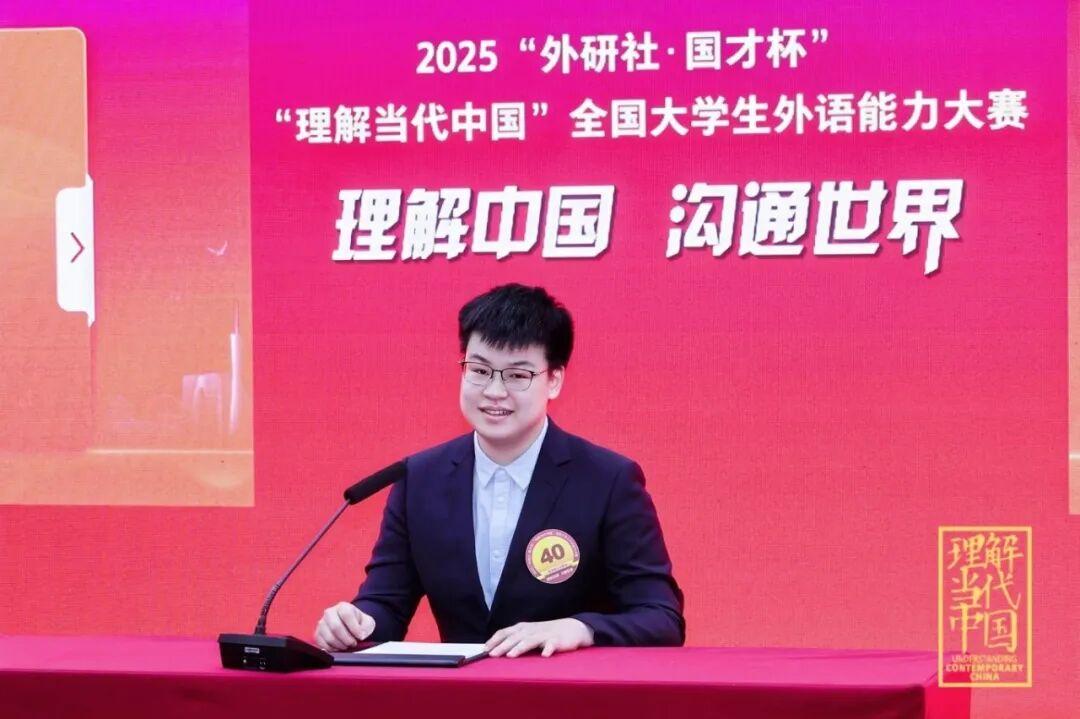Interview with Professor Abaid Ullah Zafar, a global Top 2% Scientist at WKU
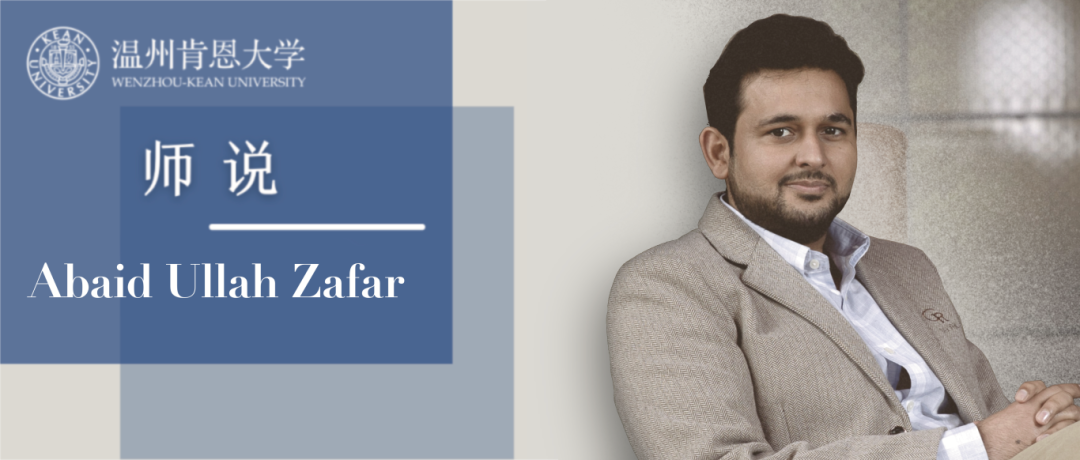
In the latest edition of the World's Top 2% Scientists List, Dr. Abaid Ullah Zafar from the College of Business and Public Management at Wenzhou-Kean University has been successfully named to the Annual Scientific Influence Ranking. His research focuses on "digital marketing and sustainable development," and he is dedicated to exploring how digital technologies drive consumer behavior and sustainable transformation.
As a renowned scholar active on the international academic stage, he is not only invited to serve as the guest editor for multiple high-impact journals but also widely recognized for his research achievements in the field. He is ranked among the top 2% of scientists globally. His papers have been published in prestigious journals such as JCR (Journal Citation Reports) Q1, with 5 selected as ESI (Essential Science Indicators) Highly Cited Papers. He also won the "Shenzhen Excellent Scientific and Technological Academic Paper Award."
Today, let’s delve into the academic world of Professor Abaid Ullah Zafar to learn how he integrates cutting-edge research into teaching practice.
The Other Side of Marketing: From Stimulating Consumption to Promoting Sustainability
In the eyes of most people, the core task of marketing is to "stimulate consumption." However, Dr. Zafar poses a deeper question: "Beyond driving sales, what else can marketing achieve?" He believes that marketing should serve as a bridge connecting commercial interests and social welfare, promoting "sustainable consumption."
As early as the rise of social commerce, Dr. Zafar recognized the potential guiding role of "influencer impact" on consumer behavior. His research articles such asThe Impact of Social Media Celebrities' Posts and Contextual Interaction on Impulsive Buying Behavior, and Social media and sustainable purchasing attitude: Role of trust in social media and environmental effectiveness, not only systematically analyzes how influencer content triggers consumers' impulsive purchases but also provides an early theoretical framework for brands to promote green and sustainable consumption models. These studies have become a crucial reference in the field, laying the foundation for subsequent practices.
With the rapid development of generative AI and other technologies, virtual influencers—virtual characters created through computer graphics, artificial intelligence, and other technologies—have gradually entered public view. At the INFORMS ISMS Marketing Science Conference held in Sydney, he delivered a presentation titled Virtual Influencers: Can They Impact the Role of Brand Marketing Strategies in Consumers' Shopping Decisions?, delving into the potential of virtual personas in brand communication.
Currently, he is exploring the advantages and differences between real and virtual influencers in guiding brand strategies, including those promoting sustainable consumption. His research focuses on understanding and integrating the strengths of both types of influencers to support consumer decision-making and help make sustainable consumption not just a niche choice, but gradually a mainstream market trend.
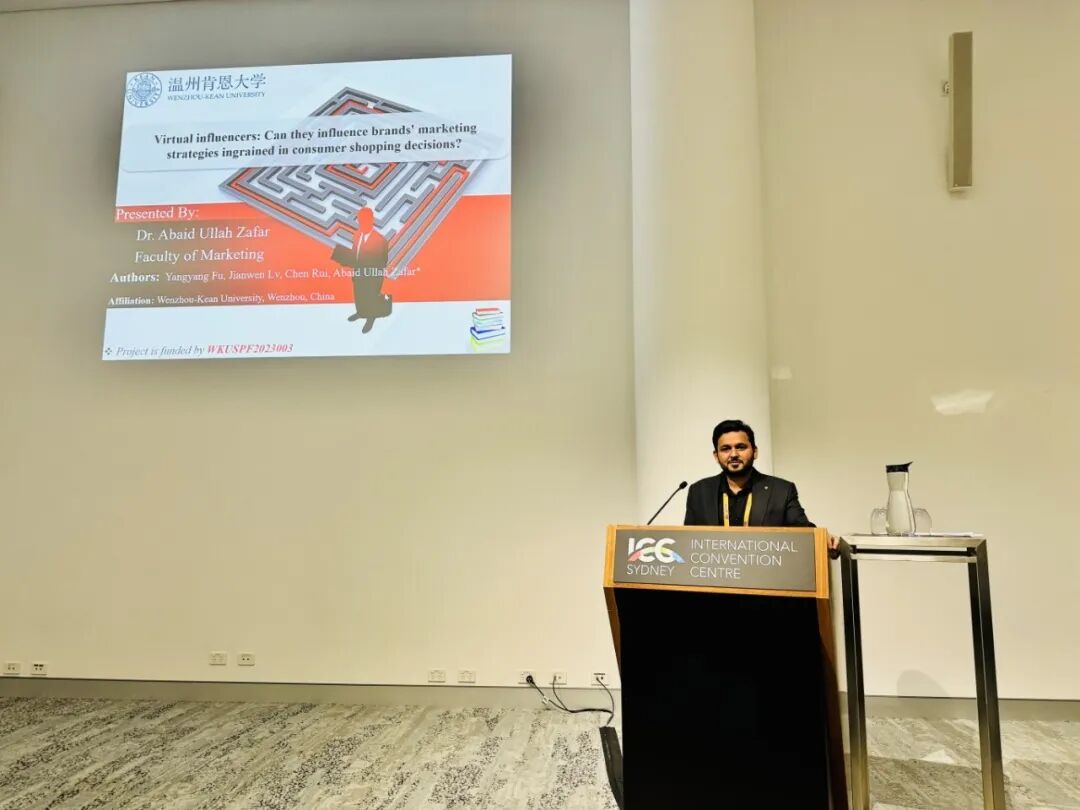
Activating Classroom Teaching Through Practice
Learning in Dr. Zafar ’s classes is never limited to lectures. He has always adhered to a "practice-centered" teaching approach, believing that marketing can only be truly understood and mastered in real-life situations. Therefore, he constantly creates opportunities inside and outside the classroom for students to apply theories to authentic projects.
For example, recently leveraging the university-industry cooperation between the Business School and SF Express International, Professor Zafar provided comprehensive guidance, worked alongside SF Express representatives in a workshop setting to lead students through the entire campaign from concept development to creative advertising for brand communication, allowing them to gain first-hand practical experience.
In addition to university-industry cooperative projects, he enriches students’ extracurricular practice and learning opportunities through real-case teaching, data analysis workshops, and guiding research-oriented practical projects on cutting-edge topics. Recently, four of his students’ projects were selected for presentation at the AMA Winter Conference (American Marketing Association) and the INFORMS ISMS Marketing Science Conference, showcasing their research on an international stage.
"Learning in real scenarios cultivates students’ ability to solve practical problems," Dr. Zafar notes. This teaching model has made his classes vibrant and highly popular among students.
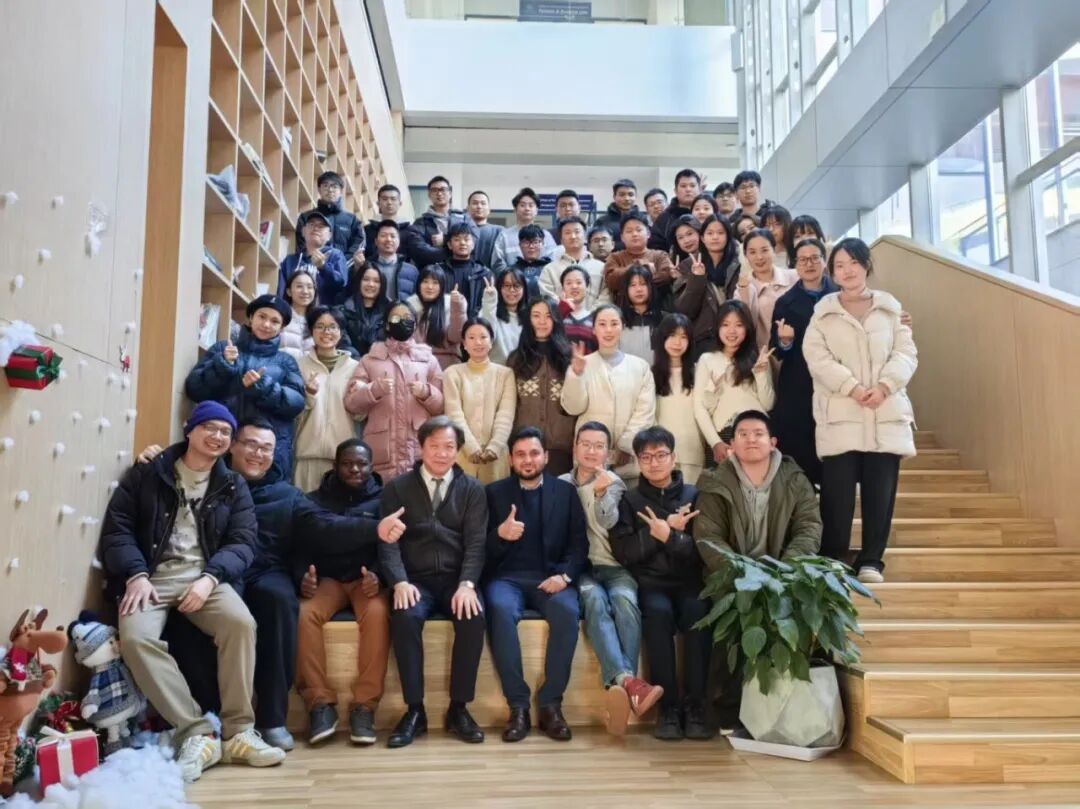
Wenzhou: A Second Hometown
For Dr. Zafar, traveling across China is his unique way of understanding this land. From the peace of Dalian and the rapid advancement of Shenzhen to the energy of Yiwu, each city has offered him a distinct perspective on China. Wenzhou, with its unique charm of "mountains and seas in harmony," has particularly surprised him.
To Dr. Zafar, WKU is an ideal platform integrating Chinese and American teaching philosophies to support his dedicated academic research, and a comfortable place to live. He says, "I really enjoy the environment here—the scenery surrounded by mountains and seas, the leisure time in cafes, and the profound humanistic care in Chinese culture all bring me warmth."
Deeply engaged in academic frontiers and connecting teaching with practice, Dr. Zafar has rooted himself in WKU’s cutting-edge academic atmosphere and humanistic care. With passion and perseverance, he continues to explore in teaching and research, illuminating students’ growth paths with professionalism and warmth.

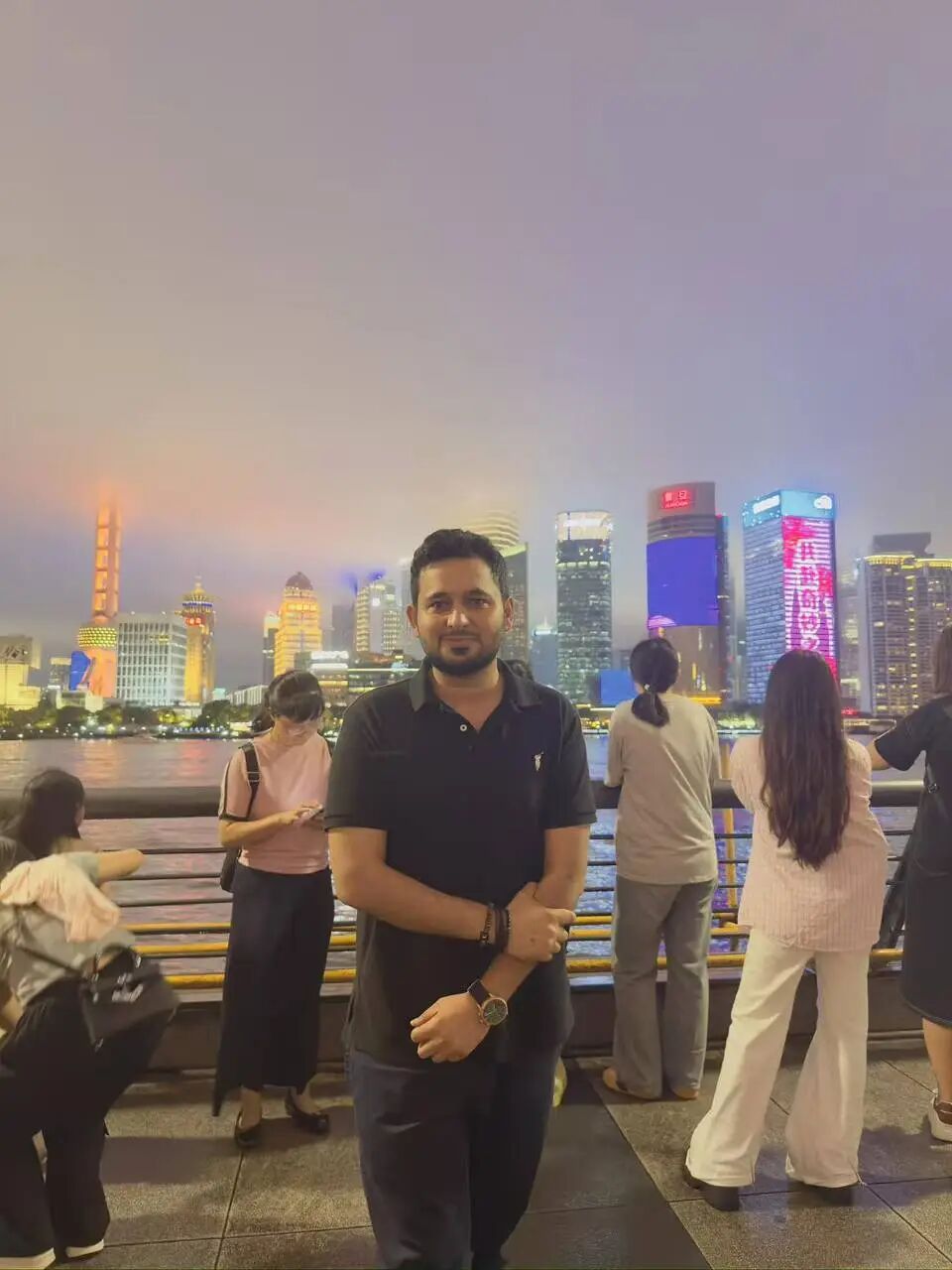

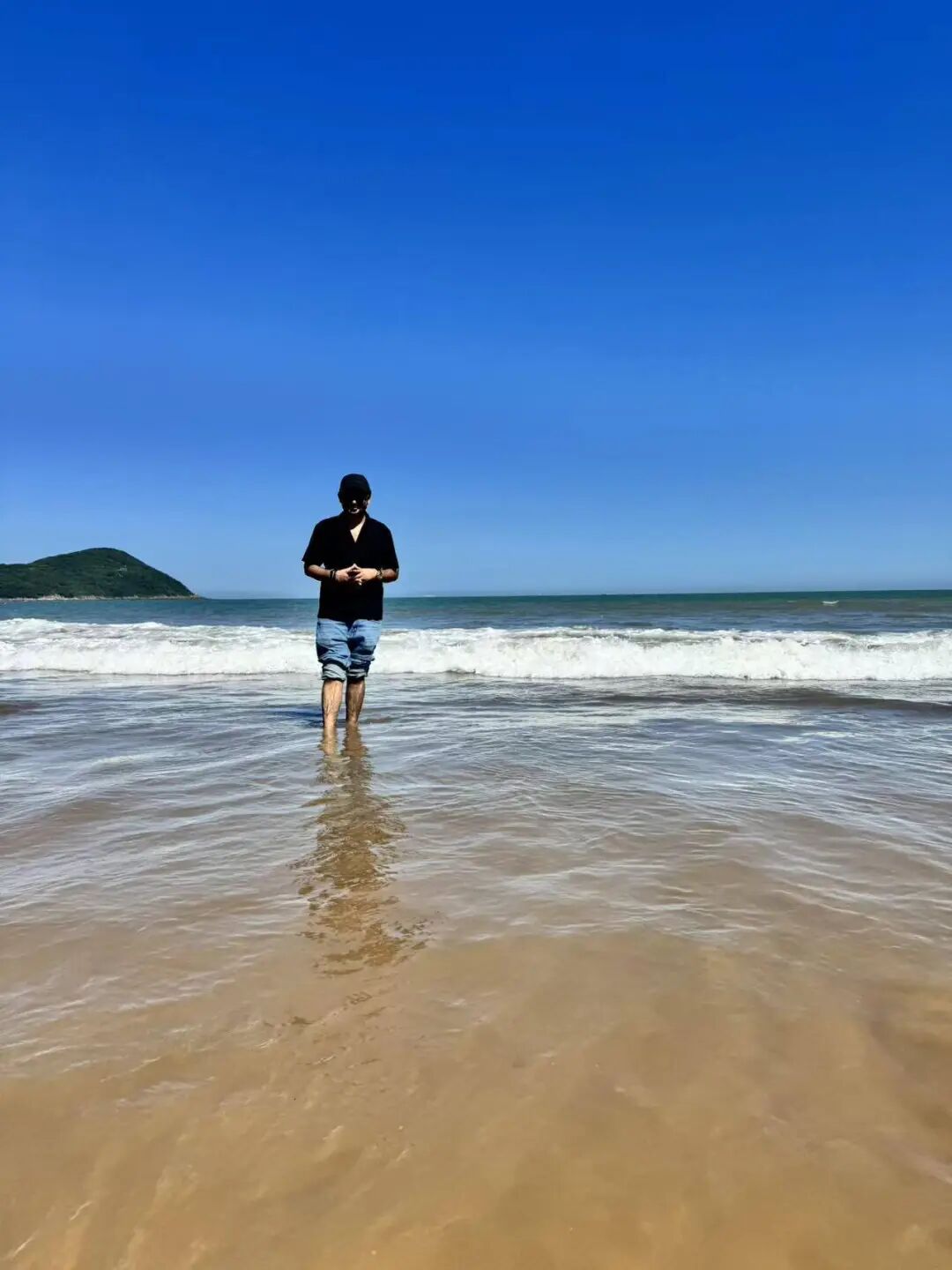
Dr. Zafar in China
- Wenzhou-Kean University Spearheading Sustainability in Higher Education in Asia and in China, Awarded the AASHE STARS Gold-Certified in Sustainability
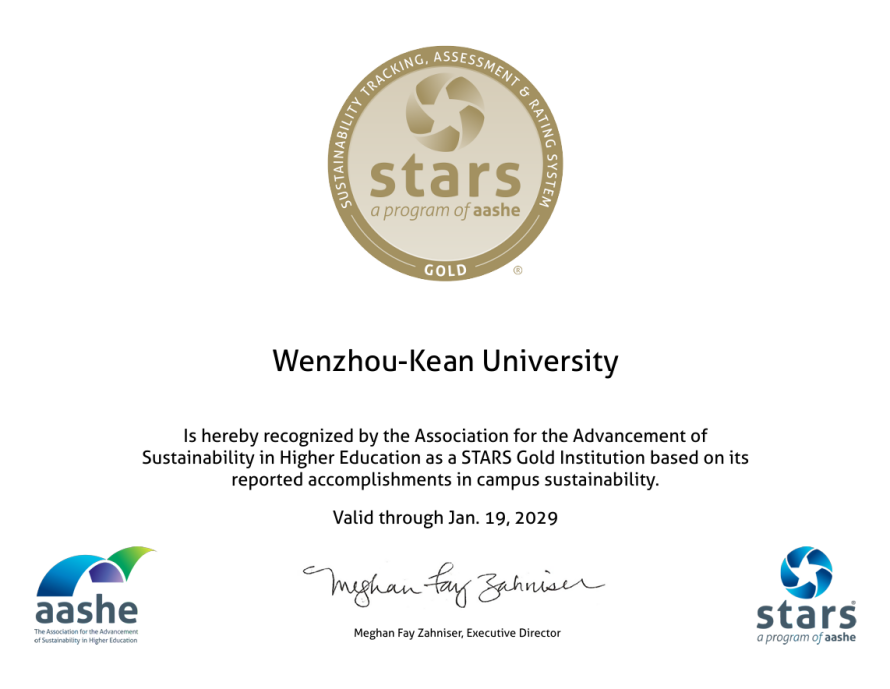
- Media Report | Wenzhou Daily: A Window into Friendship Between Chinese and U.S. Youths Wenzhou-Kean University Welcomes 340 Young Americans in Two Years
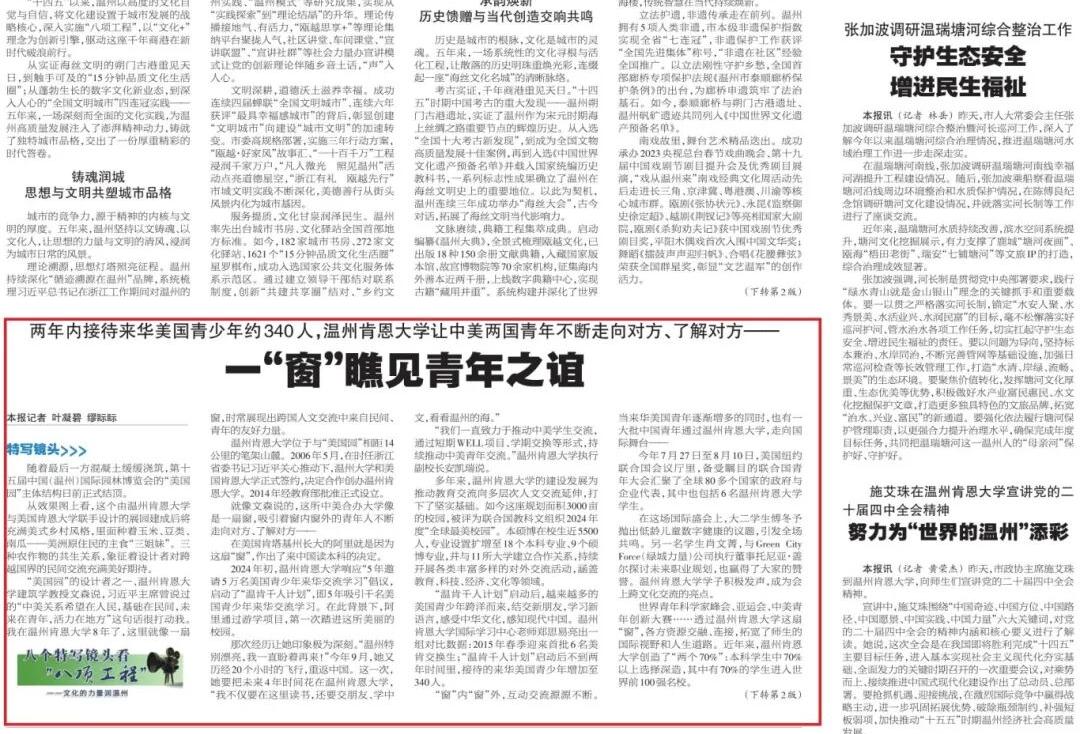
- WKU Student wins first prize in a national English speech contest: What is his answer to the value of boredom?
